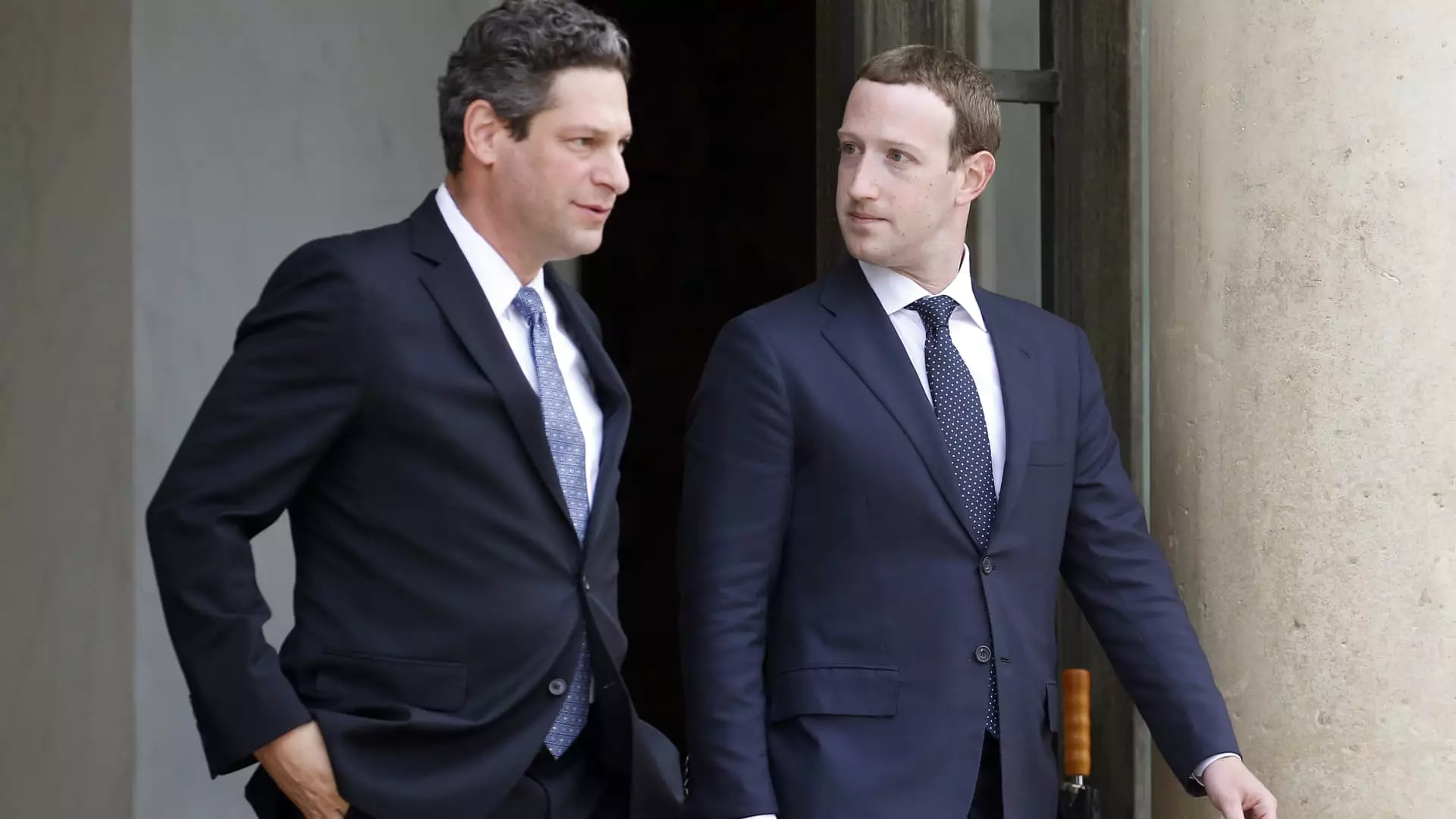In a significant organizational change, Meta, the parent company of Facebook, has announced the departure of Nick Clegg from his position as the President of Global Affairs. Replacing Clegg will be Joel Kaplan, who currently serves as the Vice President of Policy and has a background in Republican politics. This transition occurs during a critical political juncture, just weeks before the inauguration of President-elect Donald Trump, and it highlights how tech companies like Meta are recalibrating their strategies in response to an evolving political landscape.
The reshuffling of leadership is not merely an internal affair; it reflects larger trends in the interaction between technology firms and government policy. In recent years, social media platforms have faced mounting scrutiny over their roles in influencing elections and handling user data. Clegg’s resignation comes after a tenure marked by navigating a complex web of public relations crises, from the Cambridge Analytica scandal to ongoing debates over misinformation and harmful content. The appointment of Kaplan as Chief Global Affairs Officer signals a potential shift in the company’s approach to these challenges.
Clegg, once a prominent figure in British politics as the deputy prime minister, joined Meta in 2018, bringing with him political experience and a keen understanding of international governance. His leadership was characterized by efforts to improve Meta’s public perception and to engage with regulatory bodies in both the United States and the U.K. Clegg noted that the beginning of a new year provided an opportune moment for his departure, indicating a period of reflection for both him and the organization.
His tenure at Meta coincided with a pivotal time for the tech industry, where public sentiment shifted dramatically against large technology firms. Clegg’s role often involved emphasizing Meta’s commitments to user privacy and safety, as well as attempting to elucidate the company’s position during controversies. His exit raises questions about what direction Meta will take under Kaplan’s guidance and how that might affect its interactions with global governance.
Joel Kaplan’s appointment brings a new perspective to Meta’s global policy strategy due to his extensive experience within the political realm, particularly affiliated with the Republican Party. Having worked under President George W. Bush and actively participating in significant political moments—such as attending Supreme Court confirmation hearings—Kaplan’s history may influence Meta’s relations with the forthcoming administration. His proactive approach within the political framework could indicate a shift toward more assertive lobbying efforts or attempts to foster closer ties with key policymakers.
Kaplan’s integration into Meta’s leadership team is not without potential controversy. His past associations and public appearances may lead to scrutiny regarding Meta’s political affiliations and the implications for its regulatory compliance. As the company faces increasing calls for accountability, Kaplan’s first steps in his new role will likely be closely monitored.
The shift from Clegg to Kaplan could represent more than just a change in personnel; it may symbolize a broader transformation in how Meta and other tech giants engage with legislative bodies and societal expectations. With Kaplan at the helm of global affairs, we may see a recalibration of Meta’s strategies to navigate the complex political environment, particularly as regulations surrounding data privacy and content moderation continue to evolve.
In a public message, CEO Mark Zuckerberg expressed gratitude for Clegg’s contributions during his time with Meta and voiced enthusiasm for Kaplan’s appointment, highlighting the company’s commitment to solidified policy leadership. As Kaplan takes on his new role, the tech community will watch closely to see how he leverages his political connections and experience to advocate for Meta’s interests in a rapidly shifting landscape.
The leadership transition at Meta encapsulates significant themes of adaptation and resilience in the face of fluctuating political dynamics. As the tech industry continues to grapple with its societal responsibilities, the effectiveness of this new leadership will play a crucial role in shaping Meta’s future trajectory.

